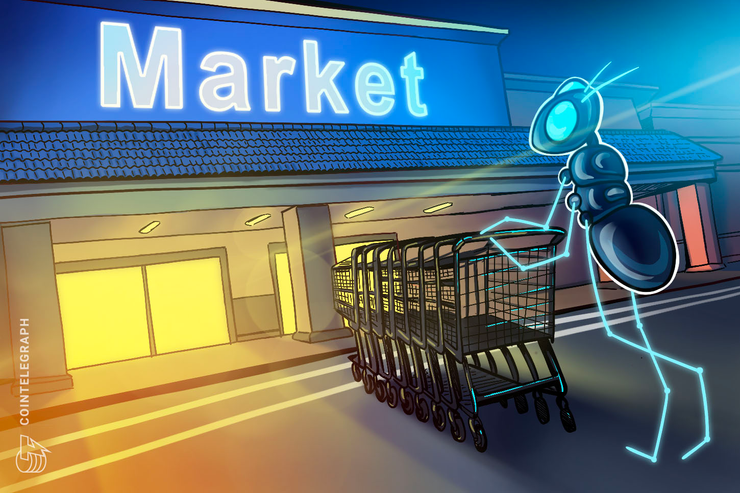
[ad_1]
Topco Associates, the largest American retail food group purchasing organization, will pilot Mastercard’s blockchain tech in its operations.
According to a press release on Oct. 27, Topco will test a traceability platform developed by logistics firm Envisible. The Wholechain platform is based on Mastercard’s blockchain-based Provenance Solution.
Topco will use the platform to trace the provenance of produce, meat and seafood.
Blockchain provides transparency for food supply chains
Blockchain technology has found widespread application in the food industry with multiple high-profile companies.
Major American retailer Walmart began using blockchain tech to track Indian shrimp supply chains earlier this month. This is reportedly the first time that the technology has been used to track shrimp from the country. Walmart China started tracking food through its supply chain with VeChain’s Thor blockchain in June.
The retailer previously stated that blockchain technology allows the firm to more quickly recall products in the event of a possible health issue.
In August, Switzerland’s largest supermarket chain and retailer Migros announced that it would use TE-Food’s blockchain-based food traceability system for its products.
Blockchain can help food supply chains, but standards are needed
Cointelegraph recently reported that Alex Manders, the head of blockchain solutions at Information Services Group (ISG), has urged the Food and Drug Administration (FDA) to offer clear guidance on blockchain apps to improve food safety.
At an FDA public meeting called “A New Era of Smarter Food Safety,” Manders said that the regulatory body should introduce clear guidelines on how to use blockchain safely in food supply chains.
ISG states that the main challenges facing blockchain adoption in food supply chains are non-technical i.e. a complete unawareness of existing blockchain infrastructure including collaboration models and vendors.
window.fbAsyncInit = function () { FB.init({ appId: ‘1922752334671725’, xfbml: true, version: ‘v2.9’ }); FB.AppEvents.logPageView(); }; (function (d, s, id) { var js, fjs = d.getElementsByTagName(s)[0]; if (d.getElementById(id)) { return; } js = d.createElement(s); js.id = id; js.src = “http://connect.facebook.net/en_US/sdk.js”; js.async = true; fjs.parentNode.insertBefore(js, fjs); }(document, ‘script’, ‘facebook-jssdk’)); !function (f, b, e, v, n, t, s) { if (f.fbq) return; n = f.fbq = function () { n.callMethod ? n.callMethod.apply(n, arguments) : n.queue.push(arguments) }; if (!f._fbq) f._fbq = n; n.push = n; n.loaded = !0; n.version = ‘2.0’; n.queue = []; t = b.createElement(e); t.async = !0; t.src = v; s = b.getElementsByTagName(e)[0]; s.parentNode.insertBefore(t, s) }(window, document, ‘script’, ‘https://connect.facebook.net/en_US/fbevents.js’); fbq(‘init’, ‘1922752334671725’); fbq(‘track’, ‘PageView’);
[ad_2]
Source link